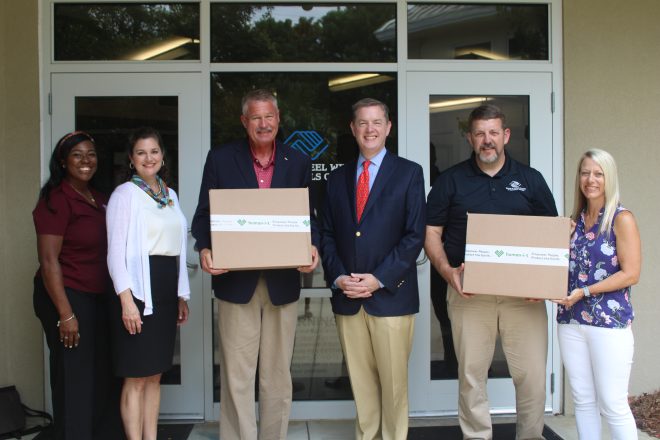Felony voting rights must be better defined
Published 8:00 am Wednesday, October 16, 2019
Don’t do the crime if you can’t do the time.
But when the time ends is it time served? Or do felony offenders keep doing time with the loss of rights, such as voting?
The SunLight Project reported Tuesday that thousands of felony offenders may see their voting rights restored sooner rather than later.
Lawmakers are considering loosening Georgia’s disenfranchisement laws.
A Senate study committee on revising voting rights for nonviolent felony offenders has the standing to recommend the change that would allow nonviolent offenders to cast a ballot as soon as their time is served.
Georgia is one of 22 states that revokes an offender’s right to vote during incarceration and while on probation or parole and before they pay off all fines and fees.
As of April, the Department of Community Supervision oversaw more than 200,000 released inmates, 75% of those they considered to be nonviolent felony offenders. Those nonviolent felony offenders — 166,001 people with drug, property or other nonviolent offenses — would be able to cast a ballot if voting rights were expanded.
While law experts say the loosening of enfranchisement laws — laws giving or taking away the right to vote — has been a trend across the country for the past decade, national criminal justice advocates say Georgia’s possible revision does not go far enough.
Though legislators are weighing restoring voting rights to felony offenders, the committee must determine what offenders shall regain those rights and what offenses should keep felons from voting again.
But the idea of restoring voting rights seems to be gaining traction in other areas and here, with legislators and the public.
Florida residents voted last year to restore voting rights for felons.
Others make the argument of restoring voting rights, or not, based on a perceived notion of knowing how felons will vote. Some believe all felons will vote Democrat, for example.
As the SunLight report noted, experts and politicians alike can only theorize if expanding voting rights to the more than 160,000 nonviolent felony offenders will change election results. Some argue revising laws on a state level could have changed the outcome of historical elections, but others say the question should not be put on the table.
“In reality, people don’t know how people will vote,” Nicole Porter, director of Advocacy for The Sentencing Project, said. “No one has a crystal ball.”
But felons and election officials do need a clearer way of seeing who can and cannot vote and when they can vote. Legislators must at least better define what felony offenders can vote, what crimes bar offenders from voting upon release, and can they vote upon release or after parole and probation.
For a lot of offenders doing the time lasts much longer than the sentence and may not be comparable to the crime. If nonviolent felony offenders have paid their debt to society, their voting rights as citizens should be restored.
Being free includes having rights.





